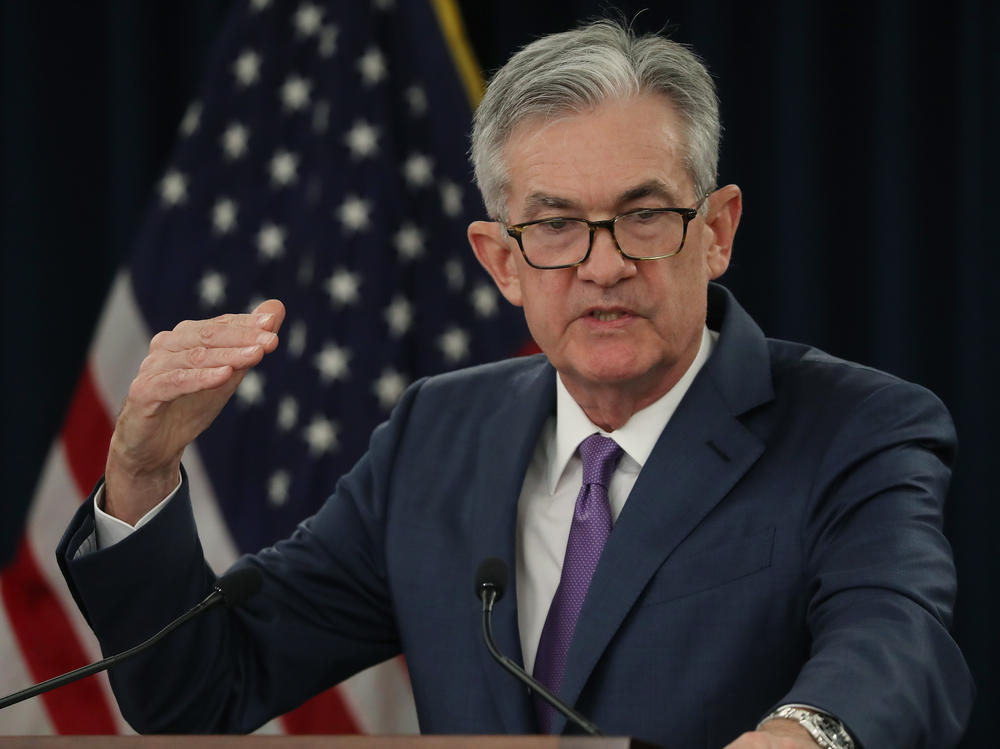Section Branding
Header Content
Taking a breather: Fed holds interest rates steady in patient battle against inflation
Primary Content
Updated June 14, 2023 at 5:46 PM ET
The Federal Reserve left interest rates unchanged Wednesday, but reaffirmed its commitment to battling stubborn inflation.
After raising interest rates at the last ten meetings in a row, Fed policymakers opted to hold their benchmark rate steady, between 5 and 5.25%. They signaled that additional rate hikes are possible, if necessary to bring prices under control.
"The committee is completely unified in the need to get inflation down to 2%, and we'll do whatever it takes to get it down to 2%," Fed chairman Jerome Powell told reporters. "We understand that allowing inflation to get entrenched in the U.S. economy is the thing that we cannot allow to happen for the benefit of today's workers and families and businesses but also for the future."
The central bank's decision to forego an eleventh consecutive rate hike comes a day after the Labor Department reported mixed progress on restoring price stability. Consumer prices in May were up 4% from a year ago — the smallest annual increase since March 2021.
Much of the drop in inflation last month resulted from falling gasoline prices, which are notoriously erratic. Excluding volatile prices for energy and food, inflation is still running at 5.3% — more than two-and-a-half times the Fed's 2% target.
"Things are still moving in the right direction and encouraging," says Kathy Bostjancic, chief economist at Nationwide. "But when we look at what we call the 'core' consumer price index, there is where you still see some stickiness."
Powell notes that he and others have repeatedly gotten burned over the last two years by underestimating the staying power of inflation.
"Forecasters, including Fed forecasters, have consistently thought that inflation was about to turn down, and been wrong," Powell said.
He says they won't make the mistake of taking their foot off the brake prematurely.
On average, Fed policymakers now think rates will need to climb about a half percentage point higher — to 5.6% — by the end of this year. In March, Fed officials expected the current rate would be high enough to bring inflation under control.
Borrowing costs have already risen at the fastest pace in decades. The average rate on a 30-year fixed-rate mortgage is 6.71%, according to Freddie Mac. The average interest rate on credit cards now tops 20%.
That's expensive for the nearly half of credit card users who carry a balance. Credit card balances have ballooned as borrowers struggle to keep pace with rising prices.
"For millions of Americans, the paycheck just doesn't go as far as the household expenses are now going, due to inflation," says Greg McBride, chief financial analyst at Bankrate. "Budgets are stretched. And we've seen that with savings coming down and with credit card debt going up."
On the flip side, people who are lucky enough to have savings in the bank can finally earn interest rates that outpace inflation.
"Savers are seeing the best returns that they've seen in 15 years, provided that they're looking in the right place," McBride says.
He cautions that it pays to shop around. Internet banks, small community banks and credit unions often have the most competitive interest rates.
"A lot of banks are still dragging their feet and have been pretty stingy in their payouts for savings accounts and CDs," McBride says. "But the top yielding accounts are over 5%. And that's where you need to have your money."
Copyright 2023 NPR. To see more, visit https://www.npr.org.

